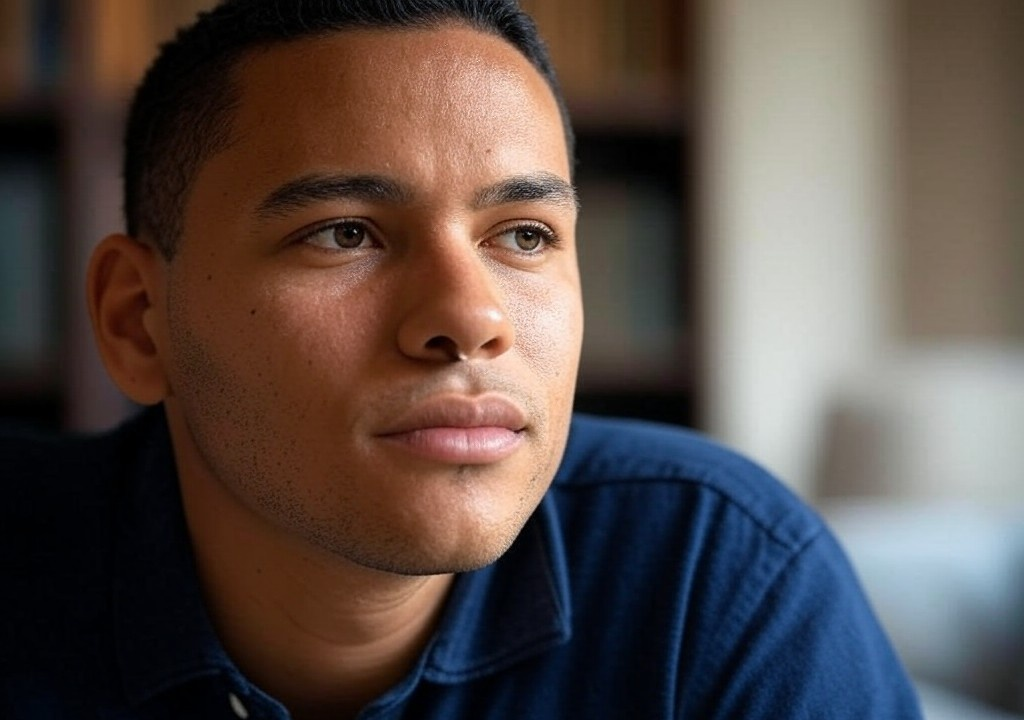I was eight years old when I first realized that relationships were complicated. My grandparents—my abuelo with his perfectly pressed guayabera and my abuela wielding her chancleta like a weapon of mass discipline—had just finished one of their daily arguments about nothing in particular. They were like an old sitcom couple: snarky, endearing, and utterly inseparable. One minute, they were bickering over an overcooked pot of frijoles, and the next, they’d be dancing to Celia Cruz in the kitchen as if nothing had happened. Even at that age, I thought, “If this is love, it’s messy—but it’s kind of beautiful too.”
Fast forward a couple of decades, and my path to writing about dating and relationships feels just as messy, though perhaps less salsa-filled. It’s a story about family, culture, heartbreak, late-night revelations, and an unapologetic love of human connection. It’s also a story about why I believe relationships—romantic, familial, or otherwise—are our greatest teachers. Here’s how I got here.
From Plantains to Personal Growth
Growing up in Miami in a multigenerational Cuban household feels, in hindsight, like an ongoing workshop in understanding human dynamics. My grandparents lived with us, which meant I had a front-row seat to their 50-year marriage—a relationship equal parts telenovela drama and deep, unwavering loyalty. My parents were hustling to adapt to life in the U.S., balancing the tightrope of assimilation and tradition while working long hours to keep us afloat. And my siblings, well, they were a mix of best friends and sworn enemies depending on who finished the last slice of flan.
In our household, emotions didn’t just trickle out; they poured like a full cafecito pot, rich and unavoidable. Love wasn’t subtle—it was loud, declarative, sometimes messy, but always there. And that’s what love teaches, first and foremost: it’s not clean or perfect, and it isn’t supposed to be. It’s as imperfect as a hand-rolled croqueta, a little lopsided but no less satisfying.
I carried that understanding through adolescence, where I quickly learned that romantic relationships were their own kind of chaos. My first heartbreak—an ill-fated high school romance that ended over a voicemail (yes, some of us dated pre-texting)—felt like the end of the world. My mom, armed with wisdom and ropa vieja, told me, “Mijo, un día, esto será un cuento para reírte.” (Translation: “One day, this will just be a story you laugh about.”) She was right, of course, but in the moment? It felt like someone stole my Quinceañera-sized dreams and stomped all over them in muddy shoes.
Why Writing About Love Matters
As I got older, I became obsessed with understanding why we love the way we do. Why some connections feel natural and effortless, and others—like that one time I tried to date a fellow history-nerd who ghosted me mid-conversation about Bolívar—feel doomed from Day One. It was this fascination that led me to study history and later write about Latinx identity and cultural dynamics.
Here’s the thing: Love, at its heart, is a story. It’s shaped by where we come from, how we’re raised, and the lives we imagine for ourselves. Writing about relationships, for me, is a way to get at these stories—the joy, the heartbreak, the humor (and trust me, there’s always humor).
Take dating, for example. Once, while living in Chicago and trying to channel my inner Hemingway, I went on a first date at a dive bar where the other person showed up an hour late and spent the rest of the night ranting about their ex. At the time, I thought, “What am I doing here?” Now, I think, “What a perfect reminder that we all come into relationships with baggage—mine was living in their carry-on that day.” These moments, frustrating as they may feel in the moment, ground us in something universal: the messiness of being human.
What Love Taught Me About Writing (and Vice Versa)
Romantic misadventures aside, the biggest reason I chose this path is because relationships are about growth—and, well, so is writing. Both require you to get comfortable with vulnerability. Both teach you to embrace failure, whether that’s rejection from a publisher or a breakup that blindsides you like a rogue wave on South Beach. Both are messy and, at times, wildly uncomfortable. But when you get it right? Magic.
Here are a few things love has taught me that made me a better writer—and a better human:
- Listen More Than You Speak: Whether you’re talking to a partner or crafting dialogue for a story, being an active listener is critical. People—and characters—reveal themselves in the quiet in-between moments, not just the dramatic declarations.
- Own Your Flaws: Nobody (and no relationship) is perfect. Trying to project perfection, whether in love or in writing, makes everything feel flat and lifeless. Authenticity is always more interesting.
- Timing Is Everything: Sometimes you meet the right person at the wrong time. Sometimes you come up with a brilliant story idea but don’t have the skills yet to execute it. Trust the timing but stay open to surprises.
The Joy of Messy, Beautiful Connections
So, why do I write about dating and relationships? It’s simple, really. I love the messiness of it all—from awkward first kisses to the bittersweet pain of goodbyes to the quiet, familiar love that comes after years of building a life together. Every stage is a lesson, a story, a reminder that we’re all just trying to connect in a world that often feels disconnected.
Today, when I think about my path, I realize this: I’m not just writing about love. I’m writing about people—their dreams, their fears, their triumphs, their salsa-dancing fights in the kitchen. And if sharing stories about this wild, wonderful thing we call love helps even one person feel a little less alone? That’s a path I’m honored to walk.
So, whether you’re navigating the thrill of a new crush, the sting of a breakup, or the comfort of lasting love, know this: It’s okay to be messy. It’s okay not to have all the answers. And it’s okay to laugh, cry, and dance in the kitchen while you figure it out. After all, love is a lot like a pot of frijoles—it takes time, patience, and maybe a little extra sazón. But in the end? It’s always worth it.




















